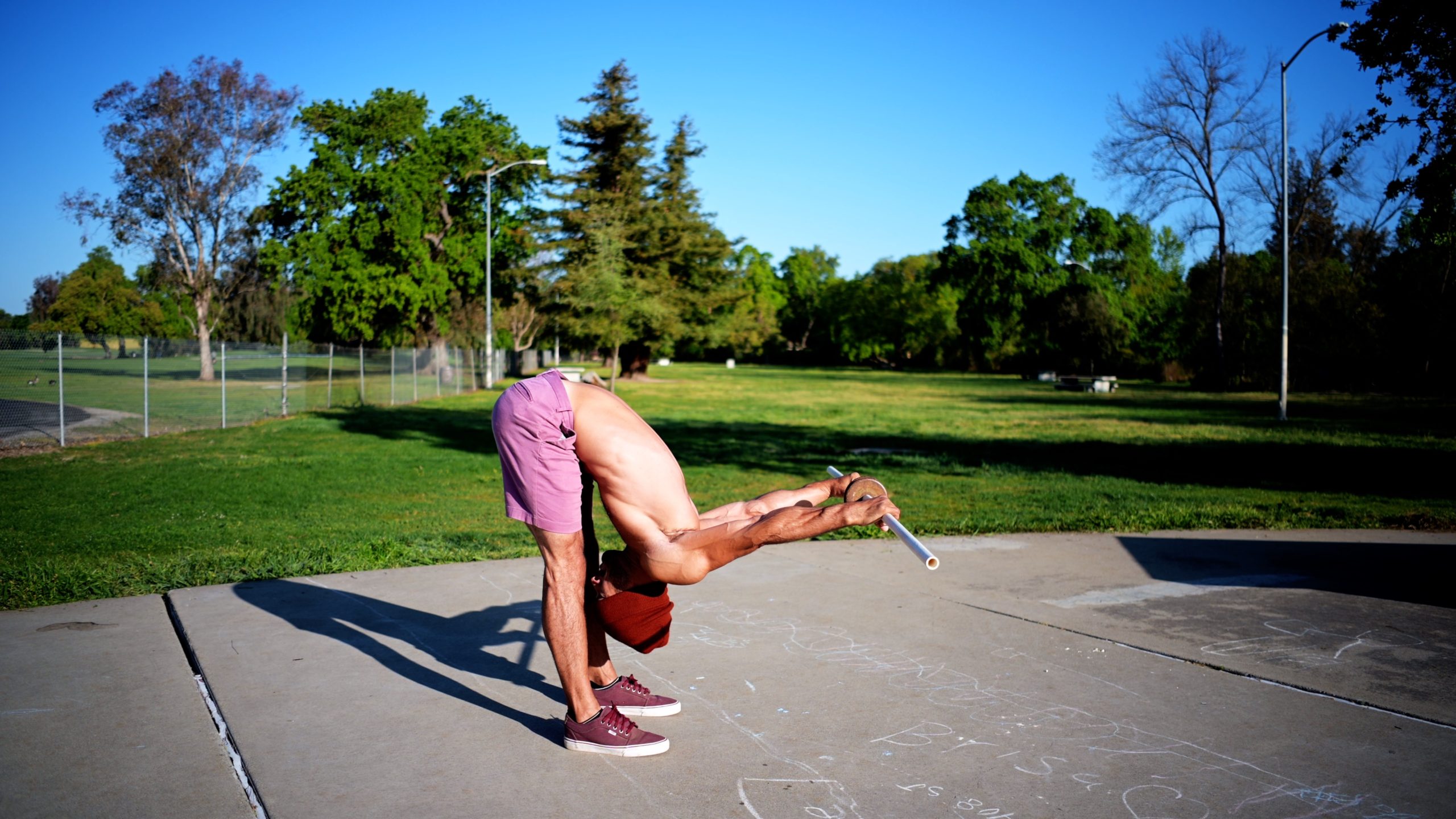Cues:
- Use a pronated grip
- Keep the torso neutral and raise the stick as high as you are able
- Hinge over and allow the weight to pull your shoulders into an increased range of motion
- Pull into this range of motion as you stand and use the stretched position to allow a higher hold each rep
- Pause in each position for AT LEAST 1 full second each rep
- Add weight to build strength and increase range
Mistakes:
- Arching the back or reaching far forward with the neck to create false range of motion
- Moving quickly through each position
- Allowing the stick to drop without utilizing the increased range from each rollover






